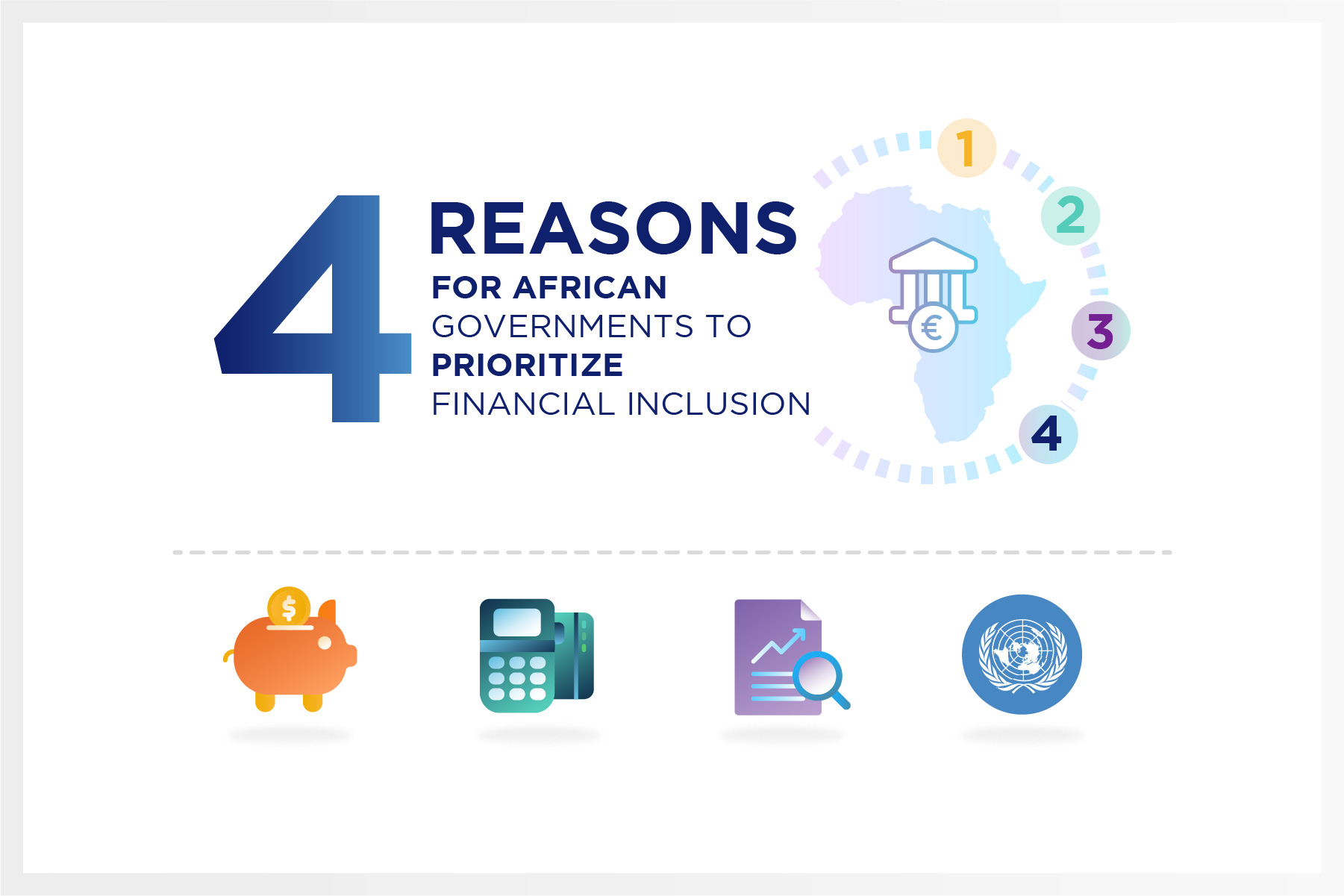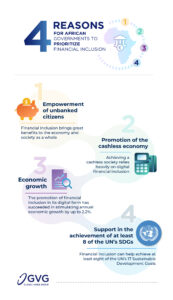
4 reasons for African governments to prioritize financial inclusion
An increasing number of Africans are enjoying access to formal financial services, thanks to the growing availability of digital services such as Mobile Money. According to the International Financial Corporation (IFC), there are now more digital financial services deployments in Africa than in any other region in the world. In Sub-Saharan Africa, more specifically, the financial inclusion rate had almost doubled in 2018, compared to its level 10 years prior, as we learn from African Arguments. However, some challenges persist, and African governments would do well to consider financial inclusion as a priority in 2022. Here are four good reasons to do so:
1. Empowerment of unbanked citizens
In a financially inclusive ecosystem, all citizens have easy access to affordable financial products and services that meet their needs. Women, for instance, are among the vulnerable groups that are particularly affected by financial exclusion. Their inclusion not only empowers them, by allowing them to take part in their country’s economy, but also brings great benefits to their communities as well as to the economy and society as a whole.
2. Promotion of the cashless economy
The transition to a cashless economy is underway in some African countries. However, its completion relies heavily on digital financial inclusion. Indeed, citizens who do not have access to formal digital financial services can’t actively participate in the cashless economy.

3. Economic growth
According to the International Monetary Fund (IMF), the promotion of financial inclusion in its digital form has had a positive impact on the economy of emerging and developing countries over recent years. Indeed, it was found to stimulate annual economic growth by up to 2.2% in these countries.
4. Support in the achievement of at least 8 of the UN’s SDGs
The World Bank states that financial inclusion can help achieve at least eight of the UN’s 17 Sustainable Development Goals (SDGs): no poverty; zero hunger; good health and well-being; gender equality and women’s empowerment; decent work and economic growth; industry, innovation, and infrastructure; reduced inequalities; and partnerships for the goals.
Interoperability as a driver of financial inclusion
As mentioned above, the digitization of financial services has been a driver for financial inclusion in Africa. However, improved interoperability is needed to facilitate interaction between these services, both at business or government level. Indeed, according to the IFC, interoperability between digital financial services providers contributes to increased financial inclusion. This is why GVG has developed TransFin, an Interoperability and National Payment Gateway Solution for Governments & Central Banks. By facilitating citizen-government and government-citizen payments, such solutions enable individuals to take a more active part in both the financial and civic ecosystems of their country.
Want to know more about interoperability and financial inclusion? Click here!
